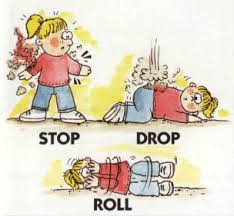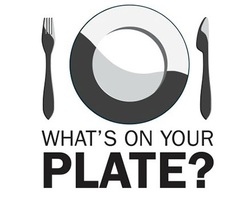 From time to time, each one of us catches on fire---emotionally, that is. Or as Dr. John Gottman, founding scientist and psychologist at the The Gottman Institute describes, we become “emotionally flooded.” When we are flooded, we go into fight-or-flight mode. Our blood pressure, heart rate and pulse increase. Chemicals like adrenaline and cortisol get pumped into our bodies. The result? It is very difficult, if not impossible, to access our smart brains; we may become reactive or shut down. This is why all our wonderful communication skills can go out the window. In a heated conversation, we may go into attack-defend mode, exhibiting what Gottman calls The Four Horseman of the Apocalypse: criticism, contempt, defensiveness and stonewalling. Not only relationships can get us flooded (or heat us up). Non-people stressors--work, finances, learning new things---can set us up to personally sabotage our prior best efforts. It is often when we get flooded that we make those destructive choices---overeating, drinking too much, isolating, procrastinating, gossiping, overspending or even self- injury. The list goes on and on. So what is one to do about the nasty habit of flooding or catching on fire? I like to think the best advice comes from the fire department. If you literally catch on fire and run around like a crazy person, you will burn up. Standing there and doing nothing is equally dangerous. We all learn in elementary school that if you catch on fire you should STOP, DROP AND ROLL! So why couldn’t we do the same for emotional/physiological fires? First we must learn to tune into the fact that we are on fire before it gets too big. Tuning into what you are experiencing physically during stress may be easier for some than identifying the emotion. Some of my clients have noted a sudden pressure in their heads, tight fists, or a sick feeling in their stomachs. I personally feel a choking around my neck. Becoming more aware can help extinguish the fire before a lot of damage is done. Once you have identified the fire (or flooding) here is what you can do. 1. STOP--If it is a conversation and it is all possible, the conversation needs to stop. Now for those who stonewall when they flood this is no problem; it is their stonewalling and shutting down that has contributed to the problem. To preserve themselves and avoid destruction they may completely detach and even physically leave. The problem with this is if it is done in the wrong way and without proper communication, the dyad goes into distance-pursuer or attack-defend mode. The attacker feels like the stonewaller doesn’t care and really both are flooded---one is just fighting, the other is fleeing, and the attacker might chase harder if he interprets the withdrawal as not caring. The difference between stonewalling and stopping would be saying something like, “I am feeling flooded and need a break.” It is making a commitment to come back and try to discuss again after decompressing. That might mean a 10-minute break is needed. It might mean a day break is needed. It might mean a break is needed till someone else such as a marriage counselor can help coach the conversation and teach the couple new skills. A prior conversation that addresses the pattern and destructiveness of persisting in a conversation where one or both partners are flooded is helpful; a plan of what to do about that is needed. In this way one is prepared to give the other the space to self-soothe. 2. DROP--Bringing down the elevated physiology is a must. Learning how to stop and really breathe is incredibly helpful, so never undermine something as simple as breathing. There is a wonderful phone app, Breathing Zone, which allows you to practice breathing. Others practice prayer or meditation to bring down elevated pulses. It is not unusual to for me in the privacy of my home or behind closed office doors to drop to my knees---a literal dropping to solidify the moment---and say “Jesus, please help me. I can’t do this. Help me let go and give this to you.” The key to your DROP strategy working is practicing it often---even when you are not flooded. Things like breathing, prayer, and meditation are great tools, but if you only save them for when you are flooded, you will be annoyed with them. It would be like me having a jack in my trunk, but it won’t help me when I have a flat tire because I have no confidence or skill with the tool. 3. ROLL--Once you drop, you can embrace a new mindset. Tap into all those smart things you know. Find that perspective and clarify your thinking. Know your commitments, values and what is important. Embrace listening and understanding others as much as you want to be understood. If you have spiritual beliefs, embrace that you are taken care of and have all you need. Embrace taking one day at a time. Jill Lillard, MA LPC is an approved member of The Gottman Referral Network
2 Comments
 “Mom, we are out of milk!” Yes, I need to get milk. As a matter of fact, there are a lot of things I need to get. “Add it to the grocery list!” I shout. And one need triggers another as thoughts race through my head. When in the world am I going to get to the store? When am I going to schedule an oil change? All the while, I’m thinking we need to get out of the door in 10 minutes. I still don’t have makeup on. A chain of unexpected events early in the week sent life into a tail spin and one thing set another behind. On top of daily living, receiving a text from a friend struggling with deep grief reminded me of my own vulnerability. The fact that I had my crazy happy life today was no guarantee it would be there tomorrow. Every day I talk to those whose plates are overflowing with trauma from the past triggered in the present, as well as fear of tomorrow, all the while stealing today's joy. A client said, “They say God doesn’t give you more than you can handle, but they sure haven’t met me!” Life has dealt them a heavy load. What if we could really live in the present? Really live in what is happening right now? Today. What if the past did not haunt and the future did not stir up anxiety and fear? What if we could find joy in each day and even receive present pain? I hand my client a coaster. It is small and light. “Can you hold that for a while?” I ask. She nods. “Sure.” I have this round platter and on it are some large dried pods. Cocoa pods, I believe. Brown and hollowed out with a little shaky something on the inside. There are seven on the wood platter. Seven lifeless pods which easily represent burdens from the past---things that went wrong, losses, broken relationships, dark things that still haunt. I lift the wood platter and add that to the top of the coaster. Her hand wobbles. She reaches with her other hand to steady it. “This is the past," I announce. I reach for a container full of dried hydrangeas. I add that to her already heavy laden palm. It sits easily on top of the wood platter but it adds to the weight. “This is tomorrow. All those pretty little uncertainties. The what ifs.” The load is clearly going to take some energy to balance on her palm for very long. I then remind her the future is not happening. I remove the flowers. Nor is the past. The only place the thoughts exist are in her mind. I remove the wood platter of pods. She is left with the coaster. Easily she balances it on her palm and is even able to toss it in the air a bit and catch it flat on the surface of her hand. “This is all you have to carry today. The present. That you can handle. See how much energy it takes to manage things that aren’t happening? If you are carrying around tomorrow and last year, that is consuming a great deal of energy that was intended for today’s pursuits. It steals your joy.” Right now if a large object dropped through the roof of your house it would be freaky. But I know you could handle it. It is worrying about what just happened or what will happen next that will overload you. But the moment---you can handle it. Even pain you feel in the moment is bearable when it is not amplified by fear and worry. The trick is learning how to live in that moment and convince your body that the only thing happening is right now. So what will you put on your plate? I will take one slice of today, please. Today has everything I need, and I have everything I need for today. It may include making tangible arrangements for tomorrow, but that’s very different than living somewhere nonexistent--the past and future. I know living in negative non-existent stressful places is worse than useless, so I will take one day at a time and each day discover what my plate will hold. I will enjoy the slice of today, knowing I have all I need. Jill M. Lillard, MA LPC is a Managing Partner and Therapist at Lifesong for Growth & Wellness www.findyourlifesong.com |
Deep Thoughts
Thoughts, from our professionals. Archives
January 2015
|

 RSS Feed
RSS Feed
